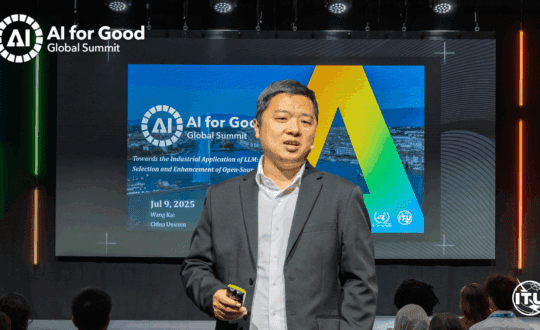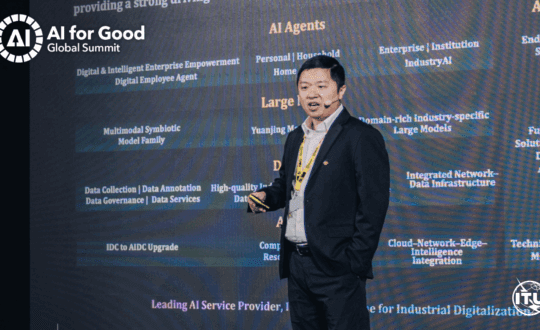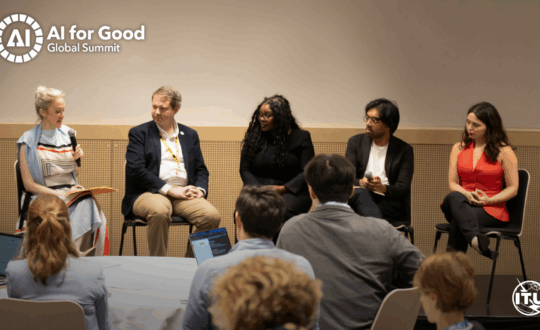As artificial intelligence (AI) evolves, the transition from centralized cloud computing to edge AI – including tinyML, AIoT, and physical AI – is changing how data is processed, analyzed, and acted upon. By bringing AI capabilities closer to the source of data generation—whether in sensors, mobile devices, or IoT systems—edge AI significantly reduces latency, bandwidth usage, and energy consumption. This shift not only enhances real-time decision-making but also addresses pressing concerns around data privacy and security. The workshop will explore the role of edge AI in creating sustainable, energy-efficient systems that can operate autonomously in diverse environments, from rural communities to densely populated urban centers (that directly address global challenges). Participants will engage with innovations and applications of edge AI across multiple sectors, including but not limited to healthcare, agriculture, environmental monitoring, and smart cities. The workshop will also highlight the development of lightweight AI models, including generative AI, tailored for edge devices and discuss the unique challenges of deploying AI in environments with limited connectivity and computational resources.
Edge AI is unlocking a new era of intelligent systems by bringing real-time decision-making directly to devices and infrastructure. In mission-critical industries—such as aerospace, automotive, defense, and industrial—this shift offers transformative potential, but also raises the stakes. Here, safety, security, reliability, and performance aren’t optional—they’re paramount. To implement Edge AI responsibly in these environments, we must embed principles such as explainability and traceability, robust privacy and data governance, and adherence to strict compliance and certification standards. When designed thoughtfully, Edge AI systems can deliver high-performance outcomes while earning trust and reducing risk. This session will explore how organizations can balance innovation with responsibility—ensuring that AI deployed at the edge not only advances business and operational goals, but does so in a way that is safe, accountable, and aligned with the principles of AI for Good.
AI is overwhelmingly cloud-dependent today due to the high compute demands of modern models, the limitations of traditional digital processors at the edge, and the difficulty of curating relevant, high-quality training data for edge use cases. But this paradigm is proving inadequate for applications that require real-time response, ultra-low power, high reliability, and strict data privacy—like continuous fall detection for elderly care.
This talk will explore how Ambient Scientific’s breakthrough AI compute architecture is enabling practical, real-world solutions by performing inference directly on tiny, battery-powered devices. Using our fall detection locket solution as a case study, we’ll discuss the architectural challenges of edge AI, the innovations needed to overcome them, and why unlocking AI at the true edge is critical for globally scalable, human-centered impact.
This talk explores how AI can be both powerful and private by operating securely on local servers and edge devices rather than relying solely on the cloud. From voice-enabled assistants that manage appointments to AI scribes that capture clinical notes and robotic systems enhanced by vision models, such innovations must be anchored in edge computing to ensure safety, resilience, and trust. We will dive into the challenges and cutting-edge solutions behind bringing AI to the edge in healthcare: model compression for efficient deployment on constrained devices, challenges to running recent mixture-of-experts models such as Llama4 in resource-constrained environments and accelerated domain-specific fine-tuning in collaboration with clinical experts. Join us to discuss how local AI can empower healthcare in a safe, secure, and robust way.
Nearly 20% of the global population is living with some degree of hearing loss, yet only a tiny fraction of those who could use them get them due to cost, poor performance, and/or stigma associated with wearing hearing aids. Untreated hearing loss costs billions of dollars annually, disproportionately affects low- and middle-income populations, and is a major factor contributing to cognitive decline, social isolation, depression, balance and mobility issues, and many more conditions that can be mitigated by treating hearing loss.
We are addressing the biggest factors contributing to the prevalence of untreated hearing loss with our SPU-001 processors and deep learning noise reduction algorithms by a.) solving the number 1 reported performance issue with hearing aids, speech quality in noise, b.) reducing the stigma by enabling smaller, more discrete form factors, and c.) reducing cost by bringing our technology to low cost OTC hearing aids for an affordable price.
Over the past five years, the TinyML Academic Network has grown from a grassroots educational initiative into a vibrant, global community dedicated to advancing machine learning at the edge. This talk will share key lessons learned from building and scaling the network, highlighting how collaborative efforts among educators, students, and industry partners have fostered innovation, inclusivity, and real-world impact. Attendees will gain insights into the strategies that enabled effective curriculum development, knowledge exchange, and sustainable community engagement. The presentation will also discuss challenges faced—such as resource limitations and diverse educational contexts—and how these were addressed through partnerships and open-source approaches.
This talk explores the potential of decentralised, low-cost Edge AI with continual learning across heterogeneous devices to support disaster risk reduction and humanitarian aid. In scenarios where infrastructure is absent, damaged, or unreliable, emerging edge technologies such as drones, robots, wearable sensors, and lightweight platforms could offer real-time insights by operating autonomously and locally. These systems may be capable of identifying survivors, locating vital resources like water, scanning for environmental hazards, and assisting in field coordination, while maintaining privacy and functioning without cloud connectivity. The approach holds promise for delivering scalable, adaptable, and energy-efficient intelligence directly where it’s needed most. From early warning and situational awareness to supporting frontline safety and long-term recovery, decentralised Edge AI could offer a transformative pathway for more inclusive, resilient, and responsive humanitarian technologies.
This presentation explores the challenges and solutions in deploying AI at the edge, focusing on the limitations posed by neural scaling laws and the memory wall. It highlights the need for hardware-aware AI design, efficient feature selection, and adversarial training to overcome resource constraints while maintaining performance. The proposed strategies enable scalable, private, and energy-efficient AI solutions tailored for edge computing environments.
Imagine an AI server at the foot of every olive tree. While seemingly impossible, Mountain's AI frugal infrastructure makes ubiquitous asset understanding and protection a reality. Leveraging ultra-low power consumption, satellite connectivity, and scientific breakthroughs in AI models, we will illustrate diverse applications where AI, IoT, and satellite technology collectively unlock solutions for sustainability and asset safeguarding - without any compromise on model precision.
In today's rapidly advancing era of artificial intelligence, a key focus is how to seamlessly integrate AI technologies into diverse industries and real-world applications. The rise of edge AI has unlocked new possibilities for this transformation, with AI inference chips serving as the driving force behind this revolution.
This presentation will explore the current state and prospects of AI inference chips in China and globally. It will highlight how innovative architectures are enabling AI inference chips to meet the computational demands of various devices, and how these chips drive intelligent upgrades across industries, making AI truly ubiquitous.


















